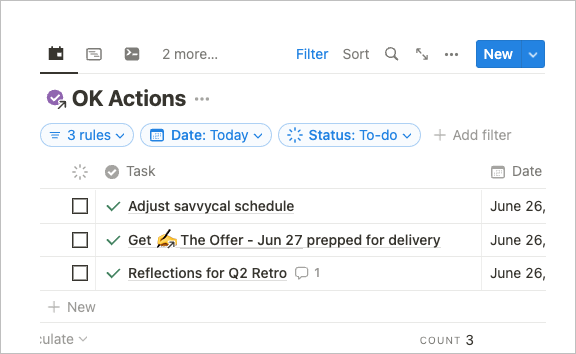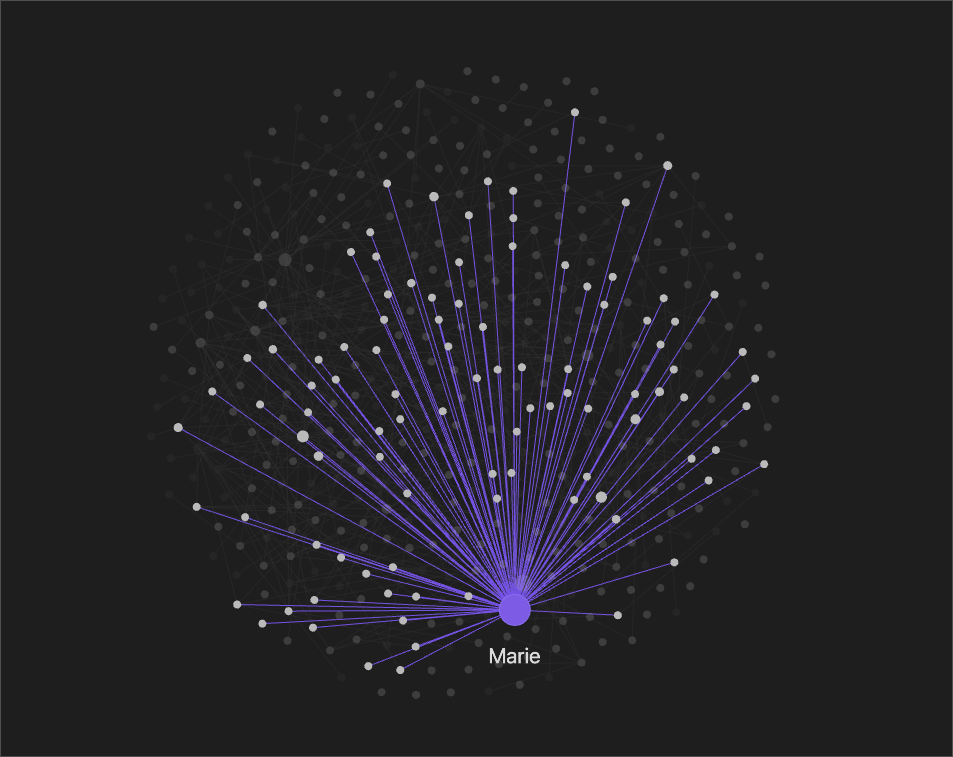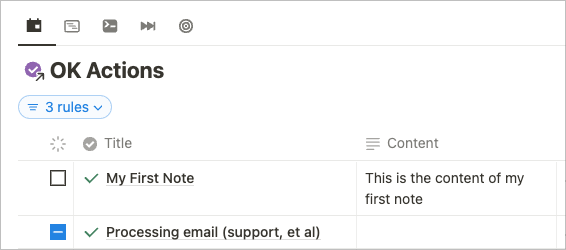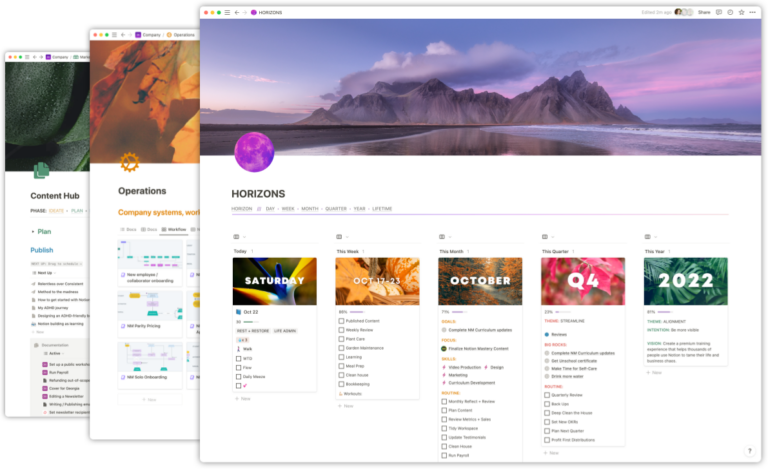Hey, you. Yes, you. The one doing all that cool stuff with *Notion, Coda, Obsidian—whatever the PKM app de jour is…
You’re a dev. Congrats.
“But I don’t do any programming!”, you object.
Oh, reaalllly?
So when you’re in Notion or Coda or ClickUp and you’re asking the app to show you all your Tasks where the status is Todo and the Due date is on or before today…

Guess what? You’re expressing programming logic through the app’s UI!
Here’s how that might look in SQL (Structured Query Language), a common language used for querying databases:
Even if you don’t know how to write SQL, I bet you can understand what’s written above if you’re a no-code afficionado.
Let’s delve deeper into what you’re doing in these no-code applications to further show you how you’re already a dev.
Every time you use the UI in Notion to apply a red color to a “Heading 1” block, Notion applies a CSS (Cascading Style Sheets) class to an HTML element to change the presentation. Here’s how that looks in “code”:
Not bad, right?
What about when you’re in Obsidian and you’re setting up your note structure, linking different topics, and even creating your knowledge graph through tagging, you’re essentially organizing data and defining relationships among them.

Sounds familiar? That’s because it’s similar to creating a database schema, a critical step in traditional programming.
Now we can add a “page” to our notes table:
Because we have auto-generated ID and the date_created is auto-generated (just like Notion’s Created time!), this would be similar to clicking the New button in a Notion database and setting the Title and Content property of the created page.

Can you add some text to a page in Notion, Coda, Obsidian, etc? Sure you can! Of course, it’s a lot easier than the examples above, but with no-code, development is much simpler!
How about some other examples?
Airtable
You might have built a table with records and fields, set data types, and established relationships between tables. In the realm of coding, this is equivalent to building a relational database, which involves SQL coding to create tables, insert data, and define constraints.
Zapier/Make
Another example is using Zapier or Make to automate actions between different apps. Let’s say you have a zap/scenario that automatically posts your newly posted blog posts from WordPress to your Twitter account. This is an example of automating tasks which, in traditional programming, requires writing scripts or a back-end job running on a server.
Might be something where you’d use the script below for fetching the data of a WordPress post to do something with it later.
(Note: This was part of a script I wrote where I might’ve more simply used Zapier or Make)
Webflow
Ever designed a website on Webflow? When you’re designing your site layout, selecting typography and colors, or setting up animations, you’re using CSS and JavaScript under the hood without writing a single line of code.
Heck, if you tweaked your theme in Obsidian, I’m considering you a dev!
Glide
Finally, consider an app-building platform like Glide. When you’re setting up the user interface, defining how data is displayed, and determining user interactions, you’re doing what software developers do when they’re programming a mobile app.
With platforms like Glide, you have to think in collections of objects, perform actions on specific objects like updates or deletes. In programming terms, we sometimes refer to this as “CRUD”, or Create, Read, Update, Delete. So if you’re doing those things with no-code…you’re already working like a dev!
Closing Thoughts
Don’t sell yourself short. Even if you’re not hacking away in a traditional programming language in a terminal window that looks like the Matrix, you’re doing the same kind of problem-solving and systems design that devs do.
If you can create advanced workflows in Notion, complex layouts in Webflow, or integrated systems in Zapier, you’re exercising the same logical, analytical skills required in programming.
Some of the smartest most technical people I know don’t write any code. And you don’t have to either to be a developer.
You’re a dev, and don’t let anyone tell you different.

[*For full disclosure, I’m a Notion Partner, so when you sign up with my link, you also help support me and my content!]
 Notion tips in your inbox
Notion tips in your inbox